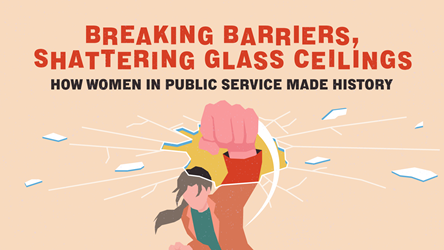Making Public Policy Seriously Fun

“Who wants to build a nation?” That was a question posed to several tertiary-level students at the 2018 Public Policy Seminar, where they dived into the roles of policy-makers by playing games.
In the board game “Stress Nexus! Challenge”, the participants tackled game scenarios based on the real-life challenges of energy, water and food security that countries face. Role-playing as country ministers and company directors, they had to compete and cooperate with each other to meet their objectives. The fast-paced game tested the players’ abilities to work together and share information.
The seminar was organised by the Public Service Division and Civil Service College (CSC). The CSC chose to use serious games, or learning through play, so that the students could immerse themselves in the complexities of public policy-making, with all its multiple tension points and dilemmas.
Engaging differently
The seminar’s organising team of four told Challenge that they wanted to provide a refreshingly different learning style, away from the lecture format that students would be used to.
Experiential learning through playing games would energise the youth participants, and give them the chance to step into the shoes of policy-makers who grapple with complex issues and trade-offs.
“Playing (serious) games allowed the youths to experience at a small scale what policy-makers face daily, in a simulated environment,” said Mr Kenneth Goh, Assistant Manager at the CSC and one of the organisers. This experiential approach is also part of the CSC’s efforts to redefine learning for public officers.
Games customised for youths
The students played three other games – “Cities of Albion”, which the CSC repurposed for the seminar; as well as “Megaloprokopé” and “O$P$ (Owe Money Pay Money)”, two games developed by the CSC for experiential learning.
In the computer game “Cities of Albion”, the students acted as leaders in a common city. Each player took care of a different aspect of society, with each decision they made affecting other players, so they had to learn the importance of cooperating across different portfolios to develop a successful city.
Participant Nur Hazeem Bin Abdul Nasser, a Yale-NUS College undergraduate, was surprised by the “vast extent of communication” needed. He said: “Even in a small team, working on the game city’s problems already required us to negotiate and communicate effectively the outcomes of each policy decision.”
“Cities of Albion” is used in CSC’s Public Policy in Practice, which introduces public officers to the dynamics of population demographics and the need to address those challenges across agency lines as one government. The game was jointly designed by the National Population and Talent Division, Nanyang Polytechnic students and the Games Solution Centre at the former Media and Development Authority.
In “Megaloprokopé”, a mega board game with 48 players at once, participants role-played as officers from various ministries doing urban planning. One of the things the players learned was how tensions may arise when different agencies use their own methods to measure success.
Another game had the students taking the citizens’ perspective as part of gameplay. “O$P$”, a card game, simulates the tough financial decisions that low-income families need to make. The CSC created character profiles and dilemmas based on real Singapore data for this game, providing “an uncomfortable but necessary reality check for the players”, Mr Goh said.
The aim: to help players gain a deeper sense of empathy for low-wage earners, and consider the assumptions that players (and policy-makers) hold about policy beneficiaries.
Keeping participants powered up
To keep energy levels up throughout the day, the organisers minimised the pockets of waiting time for participants. They also used the Kahoot! and Micepad apps to help participants warm up to activities and be aware of the day’s programme.
“We first used the games to put participants through an experience, then helped them unpack and make sense of their experiences at a broader level related to public policy-making,” said Mr Goh.
During the seminar’s closing dialogue, participants heard from guest-of-honour Mr Desmond Lee, Minister of Social and Family Development, about his career journey. The participants were so engaged that many lingered on after the event to continue chatting with Mr Lee and forum facilitator Mr David Chua, Chief Executive of the National Youth Council.

Participant Stefan Liew from Yale-NUS College was “intrigued” by what the speakers shared about how the government is open to inviting even potential “detractors” to discuss policies in closed-door settings. “I wonder how we can be more innovative in this area to ensure that public opinion is never disregarded,” Stefan said.
Similarly, the Public Policy Seminar organisers are keen to keep exploring how to engage young people and give them the space to contribute their ideas.
Youths and students have a part to play, the organisers said. With limited resources being a reality, the government cannot do everything. This calls for the community’s help to address many of the emerging issues, and come up with ideas that we could not have thought of on our own.
Ultimately, the organising team found that it was important to immerse participants in the process of learning, not just to consume a learning product. The result: satisfied and engaged participants, and an organising team that is fired up to do the same for public officers’ learning, and other aspects of policy and innovation too.
- POSTED ON
Dec 6, 2018
- TEXT BY
Tan Hwee Hwee
- ILLUSTRATION BY
Brenda Lim









